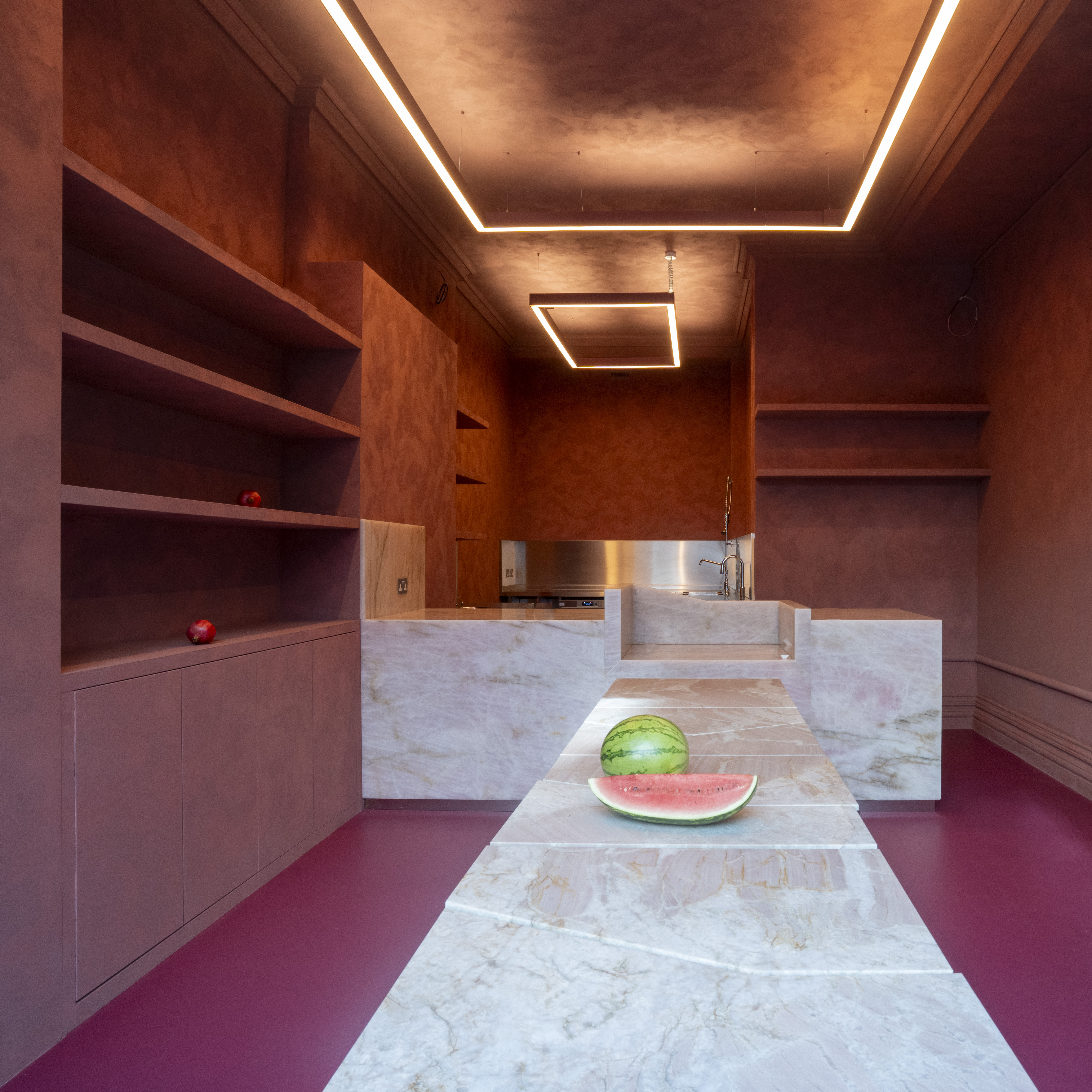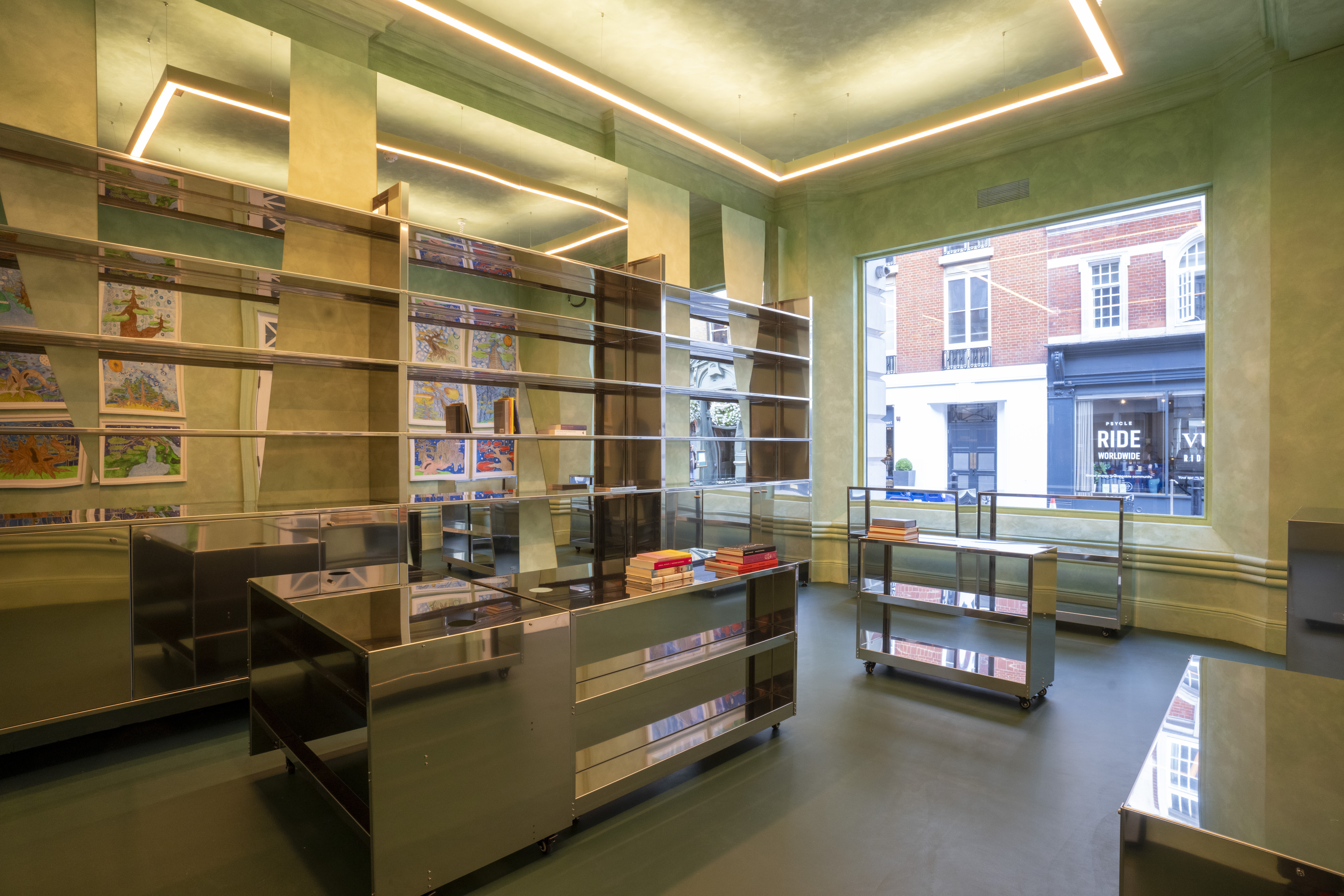In a metropolis that always leaves little room to pause, a brand new establishment is making an attempt one thing quietly radical. Ibraaz, unfolding throughout a six-storey, 10,000 sq ft Grade II-listed constructing, is conceived as greater than a gallery or efficiency venue. It goals to be a website of gathering and creativeness, the place troublesome questions are requested, new potentialities are rehearsed, and hospitality turns into a every day follow.
Based by Lina Lazaar in 2011 as a part of the Kamel Lazaar Basis, Ibraaz started as a web-based platform sharing visible tradition from the Center East and North Africa. Its bodily arrival marks a brand new chapter, rooted in a metropolis Lazaar sees as central to the undertaking’s ambitions. ‘There isn’t any extra diasporic metropolis on the earth than London,’ she says.
Ibraaz at 93 Mortimer Road, London
(Picture credit score: ©Hugo Glendinning. Courtesy Ibraaz)
‘Are available in, feed your stomach, feed your thoughts. And as you go up the constructing, feed your soul’
Hammad Nasar
Hammad Nasar, director of programmes and content material, frames the undertaking as each formidable and vital. ‘The concept of the World Majority will not be a hard and fast geography, nor a hard and fast typology,’ he explains. ‘It’s an aspiration and a risk for connection.’ This openness shapes Ibraaz’s ethos. Relatively than presenting static exhibitions or inflexible programmes, it evolves fluidly, with areas and concepts, and audiences revealing themselves over time. Lazaar describes this as ‘a cosmology of curiosity and of audiences’.
The constructing itself, reimagined by architect-in-residence Sumayya Vally of Counterspace with assist from James Bell of MSMR Architects, embodies that spirit. Throughout six flooring, areas named after African and Arab communal typologies reinforce Ibraaz’s emphasis on hospitality. At road degree, the Maktaba (bookshop) and Oula café invite town in. The Majlis meeting corridor hosts exhibitions and conversations; Minassa on the decrease floor ground levels screenings and performances; and Iqra, the library, gives an area for reflection and studying. ‘We’re standing right here in the midst of our café in residence,’ says Nasar. ‘Are available in, feed your stomach, feed your thoughts. And as you go up the constructing, feed your soul.’

The Oula cafe at Ibraaz, designed by Sumayya Vally
(Picture credit score: ©Hugo Glendinning. Courtesy Ibraaz)
The residency mannequin is central to this imaginative and prescient. ‘The idea of in-residence is one thing we actually care about,’ says Lazaar. ‘It’s the concept magic can occur whenever you relinquish energy to individuals you belief and whose experience and imaginative and prescient you need alongside you.’
That ethos runs via the opening programme. Ghanaian artist Ibrahim Mahama transforms the Majlis with Parliament of Ghosts, an set up constructed from colonial-era furnishings and jute sacks collected throughout the Covid interval. ‘What pursuits me most is the query of restore: how can we convey issues again to life, how can we excavate histories via materials kinds?’ Mahama asks.
Elsewhere, The Otolith Group’s Library-in-Residence turns a long time of analysis right into a dwelling archive of books, movies, and maps. The Bookshop-in-Residence, curated by the Palestine Pageant of Literature and operated by Burley Fisher Books, foregrounds crucial international literature. Oula café, led by chef Boutheina Ben Salem, celebrates Tunisian culinary traditions and storytelling via meals. Author and cultural critic Shumon Basar, as curator-at-large for public programmes, shapes a discursive strand of talks and occasions, whereas curator Ibed Boujellab leads Ibraaz’s evolving music and sound programme.

Bookshop (Muktaba) at Ibraaz, designed by Sumayya Vally
(Picture credit score: ©Hugo Glendinning. Courtesy Ibraaz)
For Lazaar, the purpose is to weave these threads into a bigger journey. ‘You’re not coming right here for one piece of content material,’ she says. ‘You’re making an attempt to string a journey that connects completely different geographies, throughout content material and medium. We actually need this to be an open establishment, collaborating with like-minded organisations and creating sufficient porosities for others to affix us.’ Nasar provides that the in-residence mannequin permits interactions to unfold cumulatively, deepening engagement over time.
In a metropolis already wealthy with cultural establishments, Ibraaz’s proposition is to go the place others can’t or won’t, holding house for troublesome, pressing conversations whereas nurturing generosity and care. ‘We take care of the house to be a gathering of gatherings,’ says Lazaar. ‘This concept of hospitality, we don’t say it frivolously. It’s an inherent core worth we need to embody.’
What begins this October as a daring experiment in convening, connecting, and collaborating gestures already past its partitions. ‘I’m excited for the second when it’s now not ours,’ Lazaar displays. ‘It’s everybody else’s.’ In that aspiration lies Ibraaz’s most formidable promise: that via gathering, questioning, and imagining collectively, new cultural kinds and new futures can emerge.
Ibraaz is positioned at 93 Mortimer Road, London W1W 7SS
Opening hours Wednesday to Sunday: 11am–6pm. Free admission
ibraaz.org
Supply: Wallpaper

